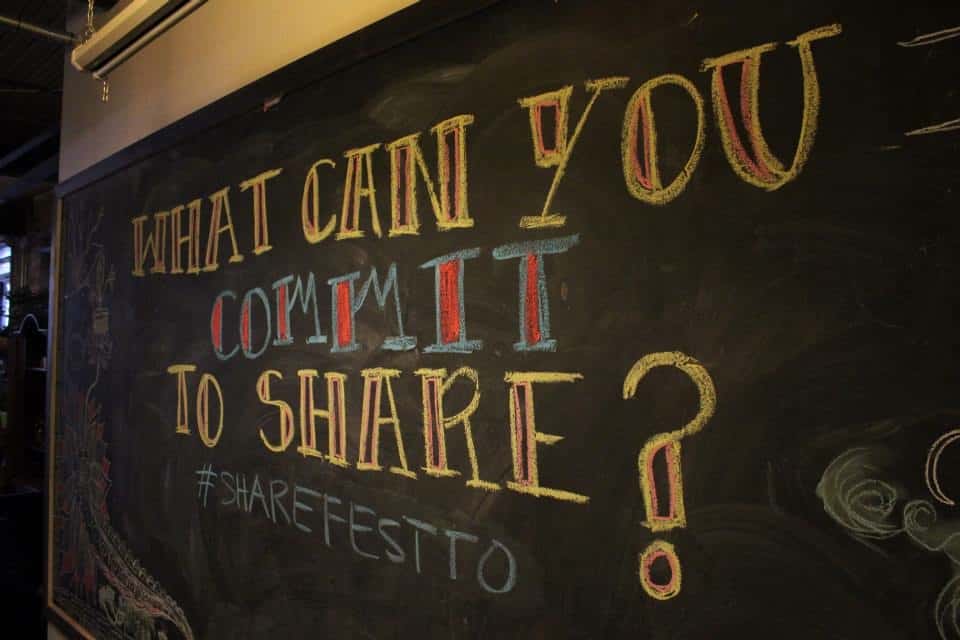Just south of bustling, commercial Bloor Street, the Centre for Social Innovation (CSI) recently brought together a group of people who are eschewing the concept of ownership altogether.
I visited the CSI’s Bathurst location last Wednesday for SharefestTO, an event dedicated to local organizations involved in what is known as the city’s “sharing economy” — a movement that promotes the sharing of goods and services as a way to save cash, help the environment, and build community.
The people I spoke with at the jam-packed Sharefest emphasized that we don’t actually need the things we buy; we only need the products or services they create. Groups like the Toronto Tool Library, the Kitchen Library, and AutoShare offer inexpensive or free lending privileges for a yearly membership fee, allowing you to borrow a drill, a fancy juicer, or even a car without the hefty price tag that would come with actual ownership. For those on a student budget, the mobile app Trashswag allows people to post photos and locations of salvageable items seen on the curb for others to find.
Students may also appreciate the sharing of expertise. I stopped by booths for bikeSauce, a centre where experts provide you with the tools and know-how to repair your own bike, and the Toronto Clothing Repairathon, which hosts volunteer-run events where they fix small rips, holes, and loose buttons in clothing for free.
Another promising find was Trade School Toronto. The school runs one-time classes in everything from crochet to sustainable investing, offered on a barter system. Each teacher provides a list of items you can bring — a favourite recipe, a latte, or an offer to clean up after class — as payment for the lesson.
U of T alumna Erin Kang worked with a team from the CSI, in partnership with the Institute for a Resource-Based Economy, MaRS Discovery District, and a collective of Toronto sharing organizations, to put the event together.
“We really experienced how much collective effort can create success,” she said, adding, “Seeing so many organizations recognizing the importance and potential of collaborative consumption and sharing, and so many people interested in what they were laying down, really touched all of our hearts.”
Many of the organizations that were present at the festival don’t have fixed locations in the downtown core, but due to the growing interest in borrowing and bartering among students, some intend to hold future events closer to campus.
The concept of not actually owning or paying for the things you need may seem radical, but Kang believes it can be a very intuitive lifestyle.
“I think that all of us touch upon the idea of sharing from a very young age,” she explains. “All of these ideas exist in our everyday lives, but we’re still caught up in old ideologies about individualism and private property as opposed to the collective good. The sharing economy is just one way we can begin to envision a future with less marginalization, less waste, and less greed.”


